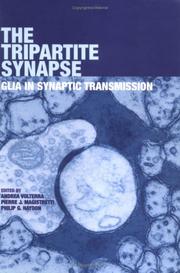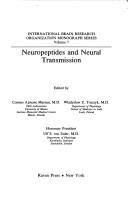| Listing 1 - 10 of 204 | << page >> |
Sort by
|
Book
Year: 2018 Publisher: Basel : MDPI - Multidisciplinary Digital Publishing Institute,
Abstract | Keywords | Export | Availability | Bookmark
 Loading...
Loading...Choose an application
- Reference Manager
- EndNote
- RefWorks (Direct export to RefWorks)
Malignant tumors develop distant metastases, e.g., small clusters of cells that detach from the primitive site and colonize distant organs and tissues. Unlike the primary masses, metastases are often difficult to fully eradicate by surgery ablation and are almost always the primary object of chemo- and/or immune-therapies. The presence of metastases at tumor diagnosis is responsible for the unfavorable prognosis and of relapses even after initially successful tumor therapies. The lack of success of chemo- and immune-therapy approaches depends on many factors among which, the inadequate capacity of the anti-tumor drugs of reaching appropriate concentrations in the organs and tissues involved in the metastatic growth is a major concern. Another factor is the complexity of the metastasis biology and of their molecular behavior, evidencing a population of tumor cells with a genetic compartment different from that of the tumor of origin. The involvement of host cells and factors recruited by the metastatic cells and committed to support the metastatic growth is also an event crucial for the lack of success of the anti-tumor therapy. The knowledge of the molecular biology of metastases is mandatory to support the search for chemical agents to treat the metastatic determinants and to control of the neoplastic disease. This Special Issue on "Chemical and Molecular Approach to Tumor Metastases" will explore the impact of biology, molecular medicine and chemistry on all aspects related to tumor metastases from the biological and molecular aspects of the metastatic growth, including the relationships between the metastatic cells and the host environment, and the search for druggable determinants useful for the chemical analysis of agents selectively active against tumor metastases. With the combination of invited reviews and original papers from prominent scientists working on all aspects of molecular medicine and cancer therapy, such as, but not limited to: drug delivery, genomics, chemoprevention, drug discovery, we aim to sample recent progress in molecular and chemical aspects of therapy of malignant tumors. Clinical success studies and evidences of novel compounds are particularly welcome.
Book
Year: 2019 Publisher: London : IntechOpen,
Abstract | Keywords | Export | Availability | Bookmark
 Loading...
Loading...Choose an application
- Reference Manager
- EndNote
- RefWorks (Direct export to RefWorks)
Drawing on the expertise of experienced researchers in neurotransmission and catecholamines, this book provides a brief overview of the latest knowledge in the field. The book contains an introductory chapter that aims to explain the subsequent four chapters for researchers who are new to the field.
Book
Year: 2019 Publisher: London : IntechOpen,
Abstract | Keywords | Export | Availability | Bookmark
 Loading...
Loading...Choose an application
- Reference Manager
- EndNote
- RefWorks (Direct export to RefWorks)
Drawing on the expertise of experienced researchers in neurotransmission and catecholamines, this book provides a brief overview of the latest knowledge in the field. The book contains an introductory chapter that aims to explain the subsequent four chapters for researchers who are new to the field.
Book
Year: 2018 Publisher: Basel : MDPI - Multidisciplinary Digital Publishing Institute,
Abstract | Keywords | Export | Availability | Bookmark
 Loading...
Loading...Choose an application
- Reference Manager
- EndNote
- RefWorks (Direct export to RefWorks)
Malignant tumors develop distant metastases, e.g., small clusters of cells that detach from the primitive site and colonize distant organs and tissues. Unlike the primary masses, metastases are often difficult to fully eradicate by surgery ablation and are almost always the primary object of chemo- and/or immune-therapies. The presence of metastases at tumor diagnosis is responsible for the unfavorable prognosis and of relapses even after initially successful tumor therapies. The lack of success of chemo- and immune-therapy approaches depends on many factors among which, the inadequate capacity of the anti-tumor drugs of reaching appropriate concentrations in the organs and tissues involved in the metastatic growth is a major concern. Another factor is the complexity of the metastasis biology and of their molecular behavior, evidencing a population of tumor cells with a genetic compartment different from that of the tumor of origin. The involvement of host cells and factors recruited by the metastatic cells and committed to support the metastatic growth is also an event crucial for the lack of success of the anti-tumor therapy. The knowledge of the molecular biology of metastases is mandatory to support the search for chemical agents to treat the metastatic determinants and to control of the neoplastic disease. This Special Issue on "Chemical and Molecular Approach to Tumor Metastases" will explore the impact of biology, molecular medicine and chemistry on all aspects related to tumor metastases from the biological and molecular aspects of the metastatic growth, including the relationships between the metastatic cells and the host environment, and the search for druggable determinants useful for the chemical analysis of agents selectively active against tumor metastases. With the combination of invited reviews and original papers from prominent scientists working on all aspects of molecular medicine and cancer therapy, such as, but not limited to: drug delivery, genomics, chemoprevention, drug discovery, we aim to sample recent progress in molecular and chemical aspects of therapy of malignant tumors. Clinical success studies and evidences of novel compounds are particularly welcome.
Book
ISBN: 1349062391 Year: 1982 Publisher: London : Macmillan Press,
Abstract | Keywords | Export | Availability | Bookmark
 Loading...
Loading...Choose an application
- Reference Manager
- EndNote
- RefWorks (Direct export to RefWorks)
Book
Year: 2019 Publisher: London : IntechOpen,
Abstract | Keywords | Export | Availability | Bookmark
 Loading...
Loading...Choose an application
- Reference Manager
- EndNote
- RefWorks (Direct export to RefWorks)
Drawing on the expertise of experienced researchers in neurotransmission and catecholamines, this book provides a brief overview of the latest knowledge in the field. The book contains an introductory chapter that aims to explain the subsequent four chapters for researchers who are new to the field.
Book
Year: 2018 Publisher: Basel : MDPI - Multidisciplinary Digital Publishing Institute,
Abstract | Keywords | Export | Availability | Bookmark
 Loading...
Loading...Choose an application
- Reference Manager
- EndNote
- RefWorks (Direct export to RefWorks)
Malignant tumors develop distant metastases, e.g., small clusters of cells that detach from the primitive site and colonize distant organs and tissues. Unlike the primary masses, metastases are often difficult to fully eradicate by surgery ablation and are almost always the primary object of chemo- and/or immune-therapies. The presence of metastases at tumor diagnosis is responsible for the unfavorable prognosis and of relapses even after initially successful tumor therapies. The lack of success of chemo- and immune-therapy approaches depends on many factors among which, the inadequate capacity of the anti-tumor drugs of reaching appropriate concentrations in the organs and tissues involved in the metastatic growth is a major concern. Another factor is the complexity of the metastasis biology and of their molecular behavior, evidencing a population of tumor cells with a genetic compartment different from that of the tumor of origin. The involvement of host cells and factors recruited by the metastatic cells and committed to support the metastatic growth is also an event crucial for the lack of success of the anti-tumor therapy. The knowledge of the molecular biology of metastases is mandatory to support the search for chemical agents to treat the metastatic determinants and to control of the neoplastic disease. This Special Issue on "Chemical and Molecular Approach to Tumor Metastases" will explore the impact of biology, molecular medicine and chemistry on all aspects related to tumor metastases from the biological and molecular aspects of the metastatic growth, including the relationships between the metastatic cells and the host environment, and the search for druggable determinants useful for the chemical analysis of agents selectively active against tumor metastases. With the combination of invited reviews and original papers from prominent scientists working on all aspects of molecular medicine and cancer therapy, such as, but not limited to: drug delivery, genomics, chemoprevention, drug discovery, we aim to sample recent progress in molecular and chemical aspects of therapy of malignant tumors. Clinical success studies and evidences of novel compounds are particularly welcome.

ISBN: 0198508549 Year: 2002 Publisher: Oxford Oxford University Press
Abstract | Keywords | Export | Availability | Bookmark
 Loading...
Loading...Choose an application
- Reference Manager
- EndNote
- RefWorks (Direct export to RefWorks)
Book
ISBN: 0387812776 Year: 1975 Publisher: Wien : ; New York : Springer-Verlag,
Abstract | Keywords | Export | Availability | Bookmark
 Loading...
Loading...Choose an application
- Reference Manager
- EndNote
- RefWorks (Direct export to RefWorks)

ISBN: 0890045011 9780890045015 Year: 1980 Publisher: New York (N.Y.): Raven Press,
Abstract | Keywords | Export | Availability | Bookmark
 Loading...
Loading...Choose an application
- Reference Manager
- EndNote
- RefWorks (Direct export to RefWorks)
| Listing 1 - 10 of 204 | << page >> |
Sort by
|

 Search
Search Feedback
Feedback About UniCat
About UniCat  Help
Help News
News